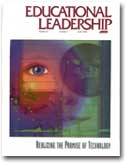What a fantastic trip we've had with Madeline! I'll never forget the fine spring day in 1978 when she came to Wisconsin to speak to the Early Childhood/Kindergarten Education Association. My husband—then an elementary school principal—was assigned the responsibility of picking her up at the airport. He asked if I wished to go along and I wasn't sure, but I said yes. And from that day forward, education at Cardinal Stritch College was changed forever.
Madeline became a yearly event at the college. All of us who heard her speak that first day were so impressed with her direct knowledge of what teachers were experiencing in their classrooms. She magically translated all the theories we had memorized in our educational psychology courses into examples and propositions we could actually apply in our classrooms—kindergarten through graduate school. Year after year, she wove this magic at Stritch for hundreds of students and teacher educators.
Madeline used stories and examples and modeling. She attached words and labels to the actions we must take to ensure our students' success. She laid the cornerstone for the knowledge base on effective teaching that has become richer and richer in the last two decades. And for many lucky ones she became our mentor, our guide, and our inspiration.
When she was asked to return to Stritch for her fourth or fifth speaking engagement, Madeline said of course she would, but she had one condition—she wanted my colleague, Tia Bojar, and me to teach with her, while she scripted the tape and gave us feedback. Our “level of concern” almost went through the roof! That experience was one of the most growth-producing experiences we had as teacher educators.
Madeline taught us to think carefully about the decisions we make as we plan for and carry out our lessons. She never said that there was only one way to plan a lesson—she rued the day the word “steps” became associated with her model of a lesson. Again and again she reminded me that although there are elements we need to consider, each situation is unique and may not require the use of each element! We often spoke of the misuse of her model.
Once I was asked to “Hunterize” a district and we both had a good laugh over the presumption that giving teachers a set of propositions would influence them to want to change. She taught us that while propositional knowledge serves as a foundation for teaching decisions, it is procedural knowledge (knowing how to do something) and conditional knowledge (knowing when and under what circumstances to do something) that raise teaching to artistic heights.
Madeline's greatest contribution was her faith in the ability of teachers to examine and internalize both the art and the science of teaching. She considered this a career-long journey. Year after year, I, like others, would return to a Hunter workshop prepared to enjoy her humor and examples, prepared to be reinforced in what I had put into practice. But I was never quite prepared for how much more I would learn. I have reams of lined yellow page filled with my “Hunter” notes.
Madeline gave me a copy of her book Mastery Teaching just after it was published. In the introduction she describes how she learned about effective teaching techniques—by watching effective teachers teach. She and her colleagues labeled these techniques and explained the psychological theory behind why they work. “As a result,” she wrote, “from now on you will know what you are doing when you teach, why you are doing what you do, and do that consciously and deliberately to increase your students' learning.”
Her goal was to help learning become more satisfying for the learner and teaching more satisfying for the teacher. Hundreds of teachers will continue to become more competent each year in their classrooms as a result of her teaching.
In my copy of her book, Madeline wrote: “To Pat, who already knows Mastery Teaching.” This I will treasure forever. A great deal of my satisfaction as a teacher—and my students' satisfaction with their learning—comes from the modeling, the examples, the coaching, and the inspiration of Madeline Hunter—a teacher of teachers.





